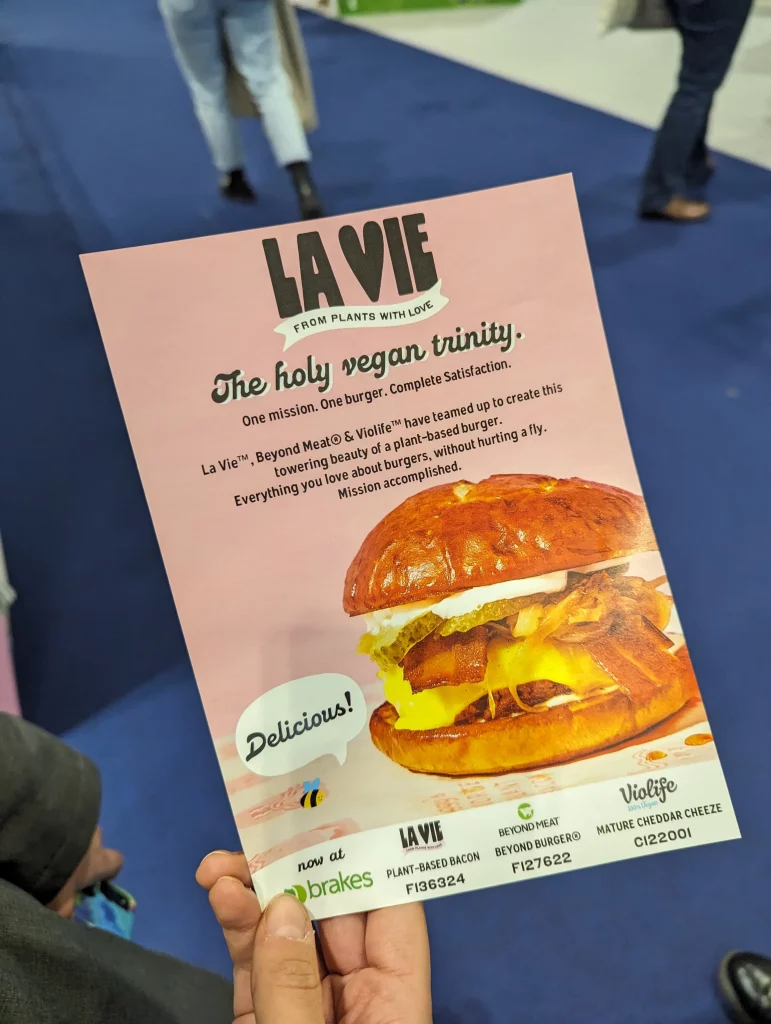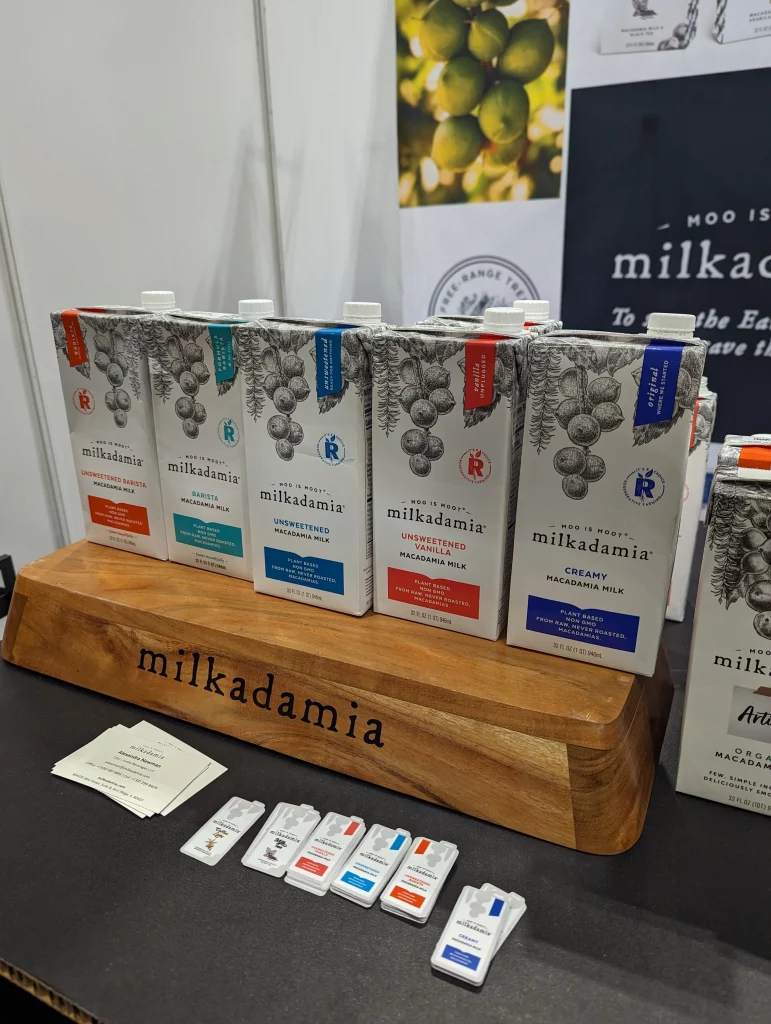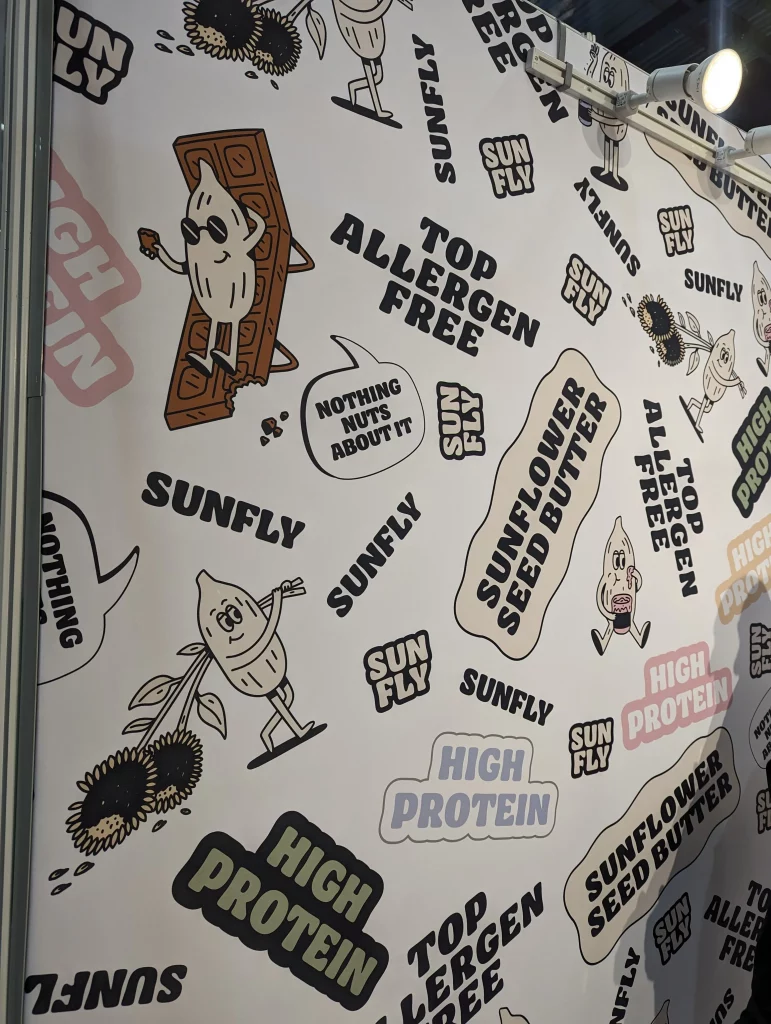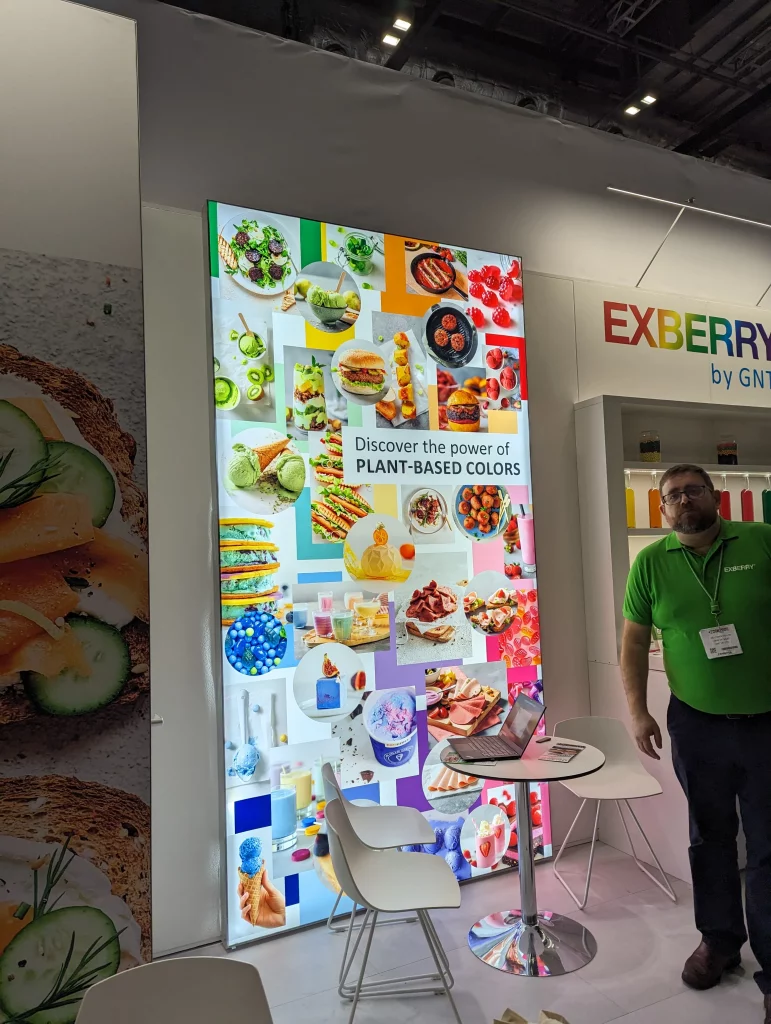Messaging beyond labels, towards authentic connections and flavours
After two decades of growth, we’re seeing a plateau in the plant-based market. From economic uncertainty and an end to COVID-19 worry to healthwashing and greenwashing, people are moving back to their meaty ways, despite 49% still moderately avoiding meat products. So, what are brands doing now? How can they persuade people to the meat-free way of life?
We’re spilling the beans on what got us cooking at the recent plant-based expo. And trust us, it’s seriously tasty. Let’s dive into what direction the industry is going, and why it could be time to drop the ‘substitute’ label!
Taste that rocks your world
Plant-based food is breaking free from mimicking meat. Brands are focusing more on the taste and ‘cleanliness’ of their products than marketing them as an ‘alternative’ or ‘substitute’ – two words that shout compromise and sacrifice.

La Fauxmagerie’s melted cheese was one example where the taste and texture weren’t close to that of real cheese but was downright delicious in its own right! LA Vie’s salty, moreish bacon was another standout product, converting our very own Ellis from its meaty counterpart. With flavours getting more authentic and delicious, they’re anything but alternatives. They deserve to stand side-by-side as first choices.
Sustainability ain’t no side dish!
While taste should rightfully take the lead, sustainability certainly shouldn’t play second fiddle and brands should proudly flaunt their eco-warrior capes. With people’s caution over greenwashing peaking, getting sustainability messaging on point is crucial.

Milkadamia’s regenerative farming practices and Heaply’s mallow made from seaweed protein were two examples from the expo that proved how sustainability has much to offer, especially in the innovation of products.
Packaging packed with benefits
Protein is priceless, and packaging knows it! We saw lots of labels and packaging boasting numbers like ‘26g protein’, proving that iconography is more of a visual manifesto that people can subscribe to.

Brands have a spectrum of ways to tell us why their products are great. Some focus on the benefits with messaging like ‘made from hemp’, ‘sustainable, healthy, tasty’, ‘for people who love meat but prefer life’, and ‘mother nature approved’. Others, meanwhile, showcase the artisanal craft and fun side of plant-based products through pictures and illustrations. This mix of messaging works for everyone, no matter where they come from
Authenticity, trust, and ingredient revelations
In a panel conversation between foodservice suppliers and operators, it was discussed how and when the relationship works best between them. The answer? Face-to-face interactions. They give operators the chance to taste products and give feedback in real time, and suppliers the opportunity to answer questions immediately. They spark natural discussion and improve the chances of product success on menus. It’s this level of realness, transparency, and open dialogue that builds long-term trust.
And there’s a desire for genuine innovation, so, trust in suppliers is crucial. Customers are getting bored of another burger or sausage with just a different flavour. ‘Processed’ has become a hot topic, with 61% of UK adults concerned about the ‘over-processing’ of food in the future. More people want to see what brands can do with natural ingredients like pulses, grains, veggies, etc. instead.
Savouring the future, bite by bite
From our time at the expo, we found that brands fit into one of two camps: bright, eye-catching and fun branding; or very clean, clinical, and lab-like – both with messaging to match. But a common thread between them was their focus on taste, sustainability, and authenticity – a winning recipe for the future of food. And the more effective plant-based brands communicate this, the more fruitful their futures will be.

When it comes to high street food destinations, vegan options often make up 3% of business. But its influence is much greater because the 3% often dictates where friends or family dine. So, having a strong vegan offering – and strong messaging to shout about it – is sure to bring in more business.